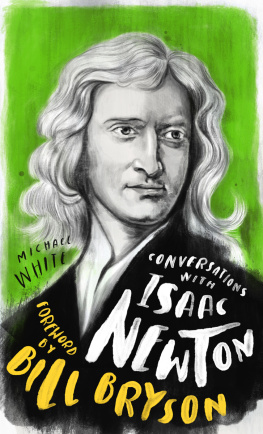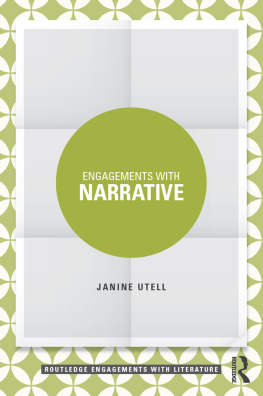Michael White - Narrative Practice: Continuing the Conversations
Here you can read online Michael White - Narrative Practice: Continuing the Conversations full text of the book (entire story) in english for free. Download pdf and epub, get meaning, cover and reviews about this ebook. year: 2011, publisher: W. W. Norton & Company, genre: Religion. Description of the work, (preface) as well as reviews are available. Best literature library LitArk.com created for fans of good reading and offers a wide selection of genres:
Romance novel
Science fiction
Adventure
Detective
Science
History
Home and family
Prose
Art
Politics
Computer
Non-fiction
Religion
Business
Children
Humor
Choose a favorite category and find really read worthwhile books. Enjoy immersion in the world of imagination, feel the emotions of the characters or learn something new for yourself, make an fascinating discovery.

- Book:Narrative Practice: Continuing the Conversations
- Author:
- Publisher:W. W. Norton & Company
- Genre:
- Year:2011
- Rating:4 / 5
- Favourites:Add to favourites
- Your mark:
- 80
- 1
- 2
- 3
- 4
- 5
Narrative Practice: Continuing the Conversations: summary, description and annotation
We offer to read an annotation, description, summary or preface (depends on what the author of the book "Narrative Practice: Continuing the Conversations" wrote himself). If you haven't found the necessary information about the book — write in the comments, we will try to find it.
Narrative Practice: Continuing the Conversations — read online for free the complete book (whole text) full work
Below is the text of the book, divided by pages. System saving the place of the last page read, allows you to conveniently read the book "Narrative Practice: Continuing the Conversations" online for free, without having to search again every time where you left off. Put a bookmark, and you can go to the page where you finished reading at any time.
Font size:
Interval:
Bookmark:

Copyright 2011 by Cheryl White and Penny White
Preface and Introduction copyright 2011 by W. W. Norton & Company, Inc.
Epilogue, Postscript, and Acknowledgment copyright 2011 by Cheryl White
All rights reserved
Printed in the United States of America
First Edition
For information about permission to reproduce selections
from this book, write to Permissions,
W. W. Norton & Company, Inc., 500 Fifth Avenue, New York, NY 10110
For information about special discounts for bulk purchases,
please contact W. W. Norton Special Sales at
or 800-233-4830
Book design by Joe Lops
Production manager: Leeann Graham
Library of Congress Cataloging-in-Publication Data
White, Michael (Michael Kingsley)
Narrative practice : continuing the conversations / Michael White ; edited by David Denborough ; preface, Jill Freedman ; introduction, David Epston ; epilogue, Cheryl White ; postscript and acknowledgment, Cheryl White. 1st ed.
p. ; cm.
A Norton Professional Book.
Includes bibliographical references and index.
ISBN 978-0-393-70692-5 (hardcover)
ISBN 978-0-393-70724-3 (e-book)
1. Narrative therapy. 2. Psychotherapy. I. Denborough, David. II. Title.
[DNLM: 1. Psychotherapymethods. 2. Narration. WM 420]
RC489.S74W46 2011
616.89165dc22
2010041788
W. W. Norton & Company, Inc.,
500 Fifth Avenue, New York, N.Y. 10110
www.wwnorton.com
W. W. Norton & Company Ltd., Castle House,
75/76 Wells Street, London W1T 3QT
W e would like to acknowledge the W. W. Norton staff in assisting us to bring this book to publication. Deborah Malmuds enthusiasm and editorial input have been invaluable and Margaret Ryans copyediting skills have made a significant contribution to this manuscript. Mark Trudinger also provided editorial assistance.
We would also like to acknowledge Mary Heath and Rachel Herzing, who provided valuable feedback on earlier drafts of .
Finally, we would like to thank the following practitioners, who responded to our invitation to contribute to the Epilogue: Isabelle Laplante (France), Nicolas De Beer (France), Niels-Henrik Srensen (Denmark), John Stillman (USA), Jim Duvall (Canada), Caleb Wakhungu (Uganda), Leticia Uribe (Mexico), Marilene Grandesso (Brazil), Pierre Blanc-Sahnoun (France), Maggie Carey (Australia), Yishai Shalif (Israel), Sekneh Hammoud-Beckett (Australia), Walter Bera (USA), Gaye Stockell (Australia), Alfonso Diaz-Smith (Mexico), Hugh Fox (UK), Shona Russell (Australia), Geir Lundby (Norway), Tod Augusta-Scott (Canada), John Winslade (NZ/USA), Jonathan Morgan (South Africa), Peggy Sax (USA), Sarah Hughes (Canada), Maksuda Begum (Bangladesh), Rudi Kronbichler (Austria), Ruth Pluznick (Canada), Zoy Kazan (USA), Marilyn ONeill (Australia), Yasunaga Komori (Japan), Lorraine Hedtke (USA), Vivian Navartnam (Singapore), Cuqui Toledo (Mexico), Kaethe Weingarten (USA), Jeff Zimmerman (USA), Angela Tsun on-Kee (Hong Kong), Maria Angela Teixeira (Brazil), Daria Kutuzova (Russia/France), Angel Yuen (Canada), and Chris Beels (USA).
David Denborough
O ne story within this book is particularly significant to me. In Michael relays a story about Donna, whom he first met when her parents were very concerned about her quality of life. Donna had a diagnosis of schizophrenia, had been on medication for this for several years, and had experienced a number of admissions to a psychiatric hospital. Michael had a series of meetings with Donna and her family over a period of 8 months, and during this time she began to step into the world. For many years, however, Donna would still occasionally visit Michael at Dulwich Centre for what she referred to as a top-up. On one particular day, the meeting took an unexpected turn:
On this occasion of meeting with Donna, I hadnt seen her for 5 months. At the end of our conversation, she looked around my interviewing room, took in the surroundings with a studied eye, and exclaimed: What a mess! She was mostly referring to my filing systemat the time I had a horizontal filing system and could never find what I was looking for. My response: Yes, it really is a mess. And I am determined to do something about this. Donnas response: What makes you think that you are ready to take this step? There was something ever so familiar about this question. I laughed, and did my best to respond. Then, a further question from Donna: I guess this decision didnt come out of the blue. What led up to it? Now we were both laughing. Donna continued to scaffold this interview with questions like: When do you think that you will be ready to take this step? Sometime in the next week or two, I guess, I said.
We chatted some more, and I then accompanied Donna down to the reception area. There, to my surprise, Donna made another appointment to meet with me, this time in 2 weeks. I remarked that this was a departure from her habit of leaving it until she felt that she needed another top-up. Oh, Donna responded enthusiastically, This appointment is not for me, its for you! I have made a time for you to see me in 2 weeks to see how you went with this plan to fix up your mess. I was open-mouthed.
Donna had made the appointment time for early on a Thursday morning, and I was up half the night on Wednesday getting my filing system into a vertical format. I then managed a few hours sleep, before fortifying myself with caffeine ahead of my meeting with Donna. It was a fantastic event. Donna dramatically swept into my room ahead of me and loudly proclaimed: What a change! You really got it together! Then she paused: But I shouldnt say that. It is what you think of this that counts. We were again laughing together, with Donna making it even more difficult for me to collect myself by asking questions like, How does this affect your picture of yourself?
This story is significant to me for a number of reasons. It conveys something of the delight, mirth, and egalitarian politics that accompanied Michaels therapeutic practice, particularly with people with serious mental health concerns. It also offers a glimpse as to the task of putting together this collection of Michaels unpublished works. If it hadnt been for Donna, perhaps we wouldnt have found some of the chapters of this book! As it was, last summer was spent immersed within Michaels horizontal and vertical filing systems. It also involved foraging amidst piles of floppy disks: those archaic plastic disks that make a whirring sound so evocative of the 1980s and 1990s. There must have been over 200 of these. The process felt a little bit like a rescue mission. I never knew what discovery might be just around the corner.
And indeed gems were found. Many of the manuscripts I already knew about and was deliberately looking for, but others were unexpected. Id open the 17th file on a particular floppy disk (always the files were labeled in incomprehensible ways) and suddenly here were previously unknown stories and sparkling ideas. It was an exhilarating feeling, and one I had known so many times before.
January was always Michaels writing time. In the heat of summer, he would be tucked away reading and writing. Wed wait patiently and gently inquire about how things were going. And then the first draft would be ready and handed to me. I always so looked forward to this moment. I always knew that Michaels latest stories and ideas would make me think differently about life. They always did. And then we would work together to bring them to their final form.
And so this time around, searching amidst the filing systems, it was as if I came across 11 first drafts. Some were much more complete than others. In compiling writings after an authors death, it seems important to be transparent about the work that has taken place behind the scenes.
Next pageFont size:
Interval:
Bookmark:
Similar books «Narrative Practice: Continuing the Conversations»
Look at similar books to Narrative Practice: Continuing the Conversations. We have selected literature similar in name and meaning in the hope of providing readers with more options to find new, interesting, not yet read works.
Discussion, reviews of the book Narrative Practice: Continuing the Conversations and just readers' own opinions. Leave your comments, write what you think about the work, its meaning or the main characters. Specify what exactly you liked and what you didn't like, and why you think so.












